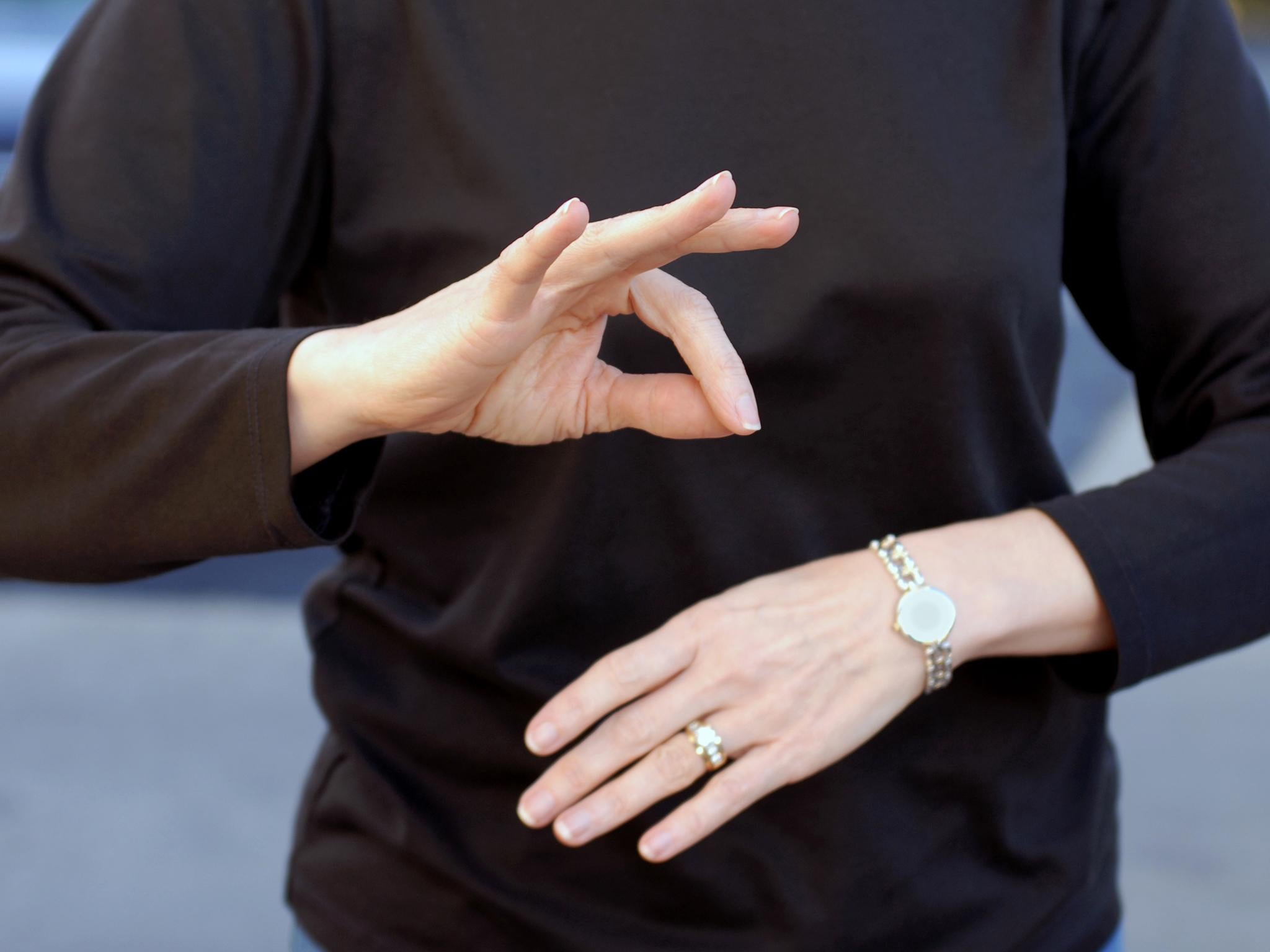Legal battle launched against government for lack of sign language provision during Covid briefings
A woman contacted lawyers when she learnt she had broken lockdown measures after they were not presented in an accessible format.

Your support helps us to tell the story
From reproductive rights to climate change to Big Tech, The Independent is on the ground when the story is developing. Whether it's investigating the financials of Elon Musk's pro-Trump PAC or producing our latest documentary, 'The A Word', which shines a light on the American women fighting for reproductive rights, we know how important it is to parse out the facts from the messaging.
At such a critical moment in US history, we need reporters on the ground. Your donation allows us to keep sending journalists to speak to both sides of the story.
The Independent is trusted by Americans across the entire political spectrum. And unlike many other quality news outlets, we choose not to lock Americans out of our reporting and analysis with paywalls. We believe quality journalism should be available to everyone, paid for by those who can afford it.
Your support makes all the difference.Legal action has been raised against the government for their lack of sign language provision during Covid briefings.
Equality lawyers have raised a judicial review after months of communication regarding the importance of a British Sign Language (BSL) interpreter at Covid briefings.
The government currently outsources their interpretation to the BBC, who are not required by law to have interpretations for all their content. This potentially excludes 80,000 people who use BSL as their primary language.
Katie Rowley, whose first language is BSL, is pregnant and has a history of illness. She decided to launch a legal battle after she learnt she had broken lockdown measures after they were not presented in an accessible format.
She told The Independent: “I am suing the government for lack of BSL access at a time that is considered life and death. Not only do I have myself to look after, but I also have my unborn son to take into account. With my medical history, including previous miscarriages and Crohn’s disease, I’m more susceptible to infections and picking up illnesses. It’s so, so important that I have access to the whole information from the government and not just selected bits that get interpreted.”
Chris Fry, a specialist equality lawyer at Fry Law, is leading the legal challenges against the government. He told The Independent: “I’ve never had a case where the solution is so easy, but the defence has been so hard.
“We have a government that’s bound by the Equality Act, doing its best to wriggle out of it.”
Fry Law wrote to the government on 16 March outlining the “crucial” nature of BSL interpretation. The letter, signed by thirteen deaf organisations, states: “Without such interpretation deaf people whose first language is BSL will be unable to access this critical [Covid] information.”
Campaigners state that the on-screen interpreter provided by the BBC is insufficient, as it is not universally accessible through all means of communication and at all times.
Both Scotland and Wales have BSL interpreters for their Covid briefings.
A petition was launched in March 2020 to require the government to have BSL interpreters at the daily briefings. With 26,305 signatures, the government responded: “The government has assessed that in accordance with PHE guidelines, we cannot safely include a BSL interpreter in the room for daily briefings without potentially putting them and others at risk.”
BSL is not signed English, which is referred to as Sign Supported English, but a language with its own grammatical structure and syntax. That is why, as explained by Chris Fry, subtitles are not sufficient and BSL is the only accessible additional measure to support the dissemination of information to the deaf community.
Cabinet Office minister Penny Mordaunt MP said: “It is vital public health information in this pandemic is accessible to all. Covid-19 guidance is provided in alternative formats including Easy Read, British Sign Language and audio. Covid-19 press briefings with BSL are published on 10 Downing Street and UK government social media channels. The BBC News channel has live signing for the briefings and has been made available across the UK via Freeview, cable, satellite and online.”
A government spokesperson also said: “We are committed to supporting disabled people through every stage of this pandemic and have established BSL interpretation at the No 10 press conferences via the BBC News channel and iPlayer, available on all TV packages as part of Freeview.
“The BBC has also made their video feed for the BSL interpreter available to all other broadcasters and for use on No 10 social channels.
“We continue to work across government to ensure that information and guidance is fully accessible.”






Join our commenting forum
Join thought-provoking conversations, follow other Independent readers and see their replies
0Comments